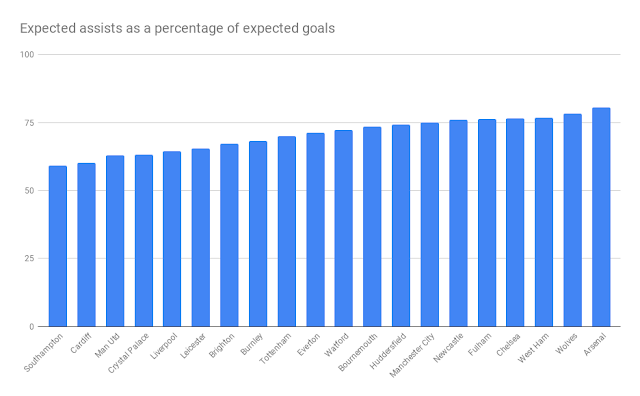Are football stats useful for lower league clubs? (Part 1)
Football analytics - the process of breaking down events in a football match into data, and using that data to draw conclusions - is becoming increasingly represented in the football media. The much maligned and misunderstood "expected goals" stat now features on Match of the Day, with Sky Sports also featuring Statsbomb data in match previews.
There are still people who say "the only statistic that means anything is the final score", they then generally slump back in their chair, arms crossed over their chest and bask in the profound wisdom they have shared, confident there is no plausible comeback.
But it is clear that clubs think differently with most large clubs having at least some form of analytics team in place.
My interest is how far down the footballing pyramid analytics is actually useful.
The argument against the use of analytics, for recruitment in particular, is that even if you identify a potential star you won't be able to sign him. The principle reasons being that everyone has access to the same data, data is only available for high level leagues, players not playing don't show up in data, the team budget is limited and analytics is only useful for marginal gains and not fundamentals.
I think the first three of these are valid concerns. If I am running a League 2 side with hardly any budget and my analyst comes to me with the name of a player in Poland with great potential we simply aren't in a position to sign him. I am more likely to want that player being released by Crystal Palace U23s who doesn't appear in the data but we liked the look of when scouting the reserves league.
So analytics is a waste of time for the lower leagues?
Absolutely not.
At the beginning of this post I defined analytics as drawing conclusions from data, however I think this definition sells short the idea of analytical thinking.
Analytical thinking is just smart decision making. If you are using your League 2 analytics budget in scouting Real Madrid players you are using analytics but you aren't thinking analytically.
At that level you want to be thinking more about the cake (fundamentals) not the icing (marginal gains).
What smart decisions could you make as an ambitious League 2 club? Much as I hate the word "philosophy" in football it is actually important to have a single vision the club is working towards. This might be as simple as defining a structure of football you want to play, like high pressing 4-3-3 with attacking full backs.
By having that simple definition, and sticking to it over a number of years you can recruit with a single vision in mind. There is no point scouting that gangly 6ft5 striker, however good he may be, if he can't press for 90 minutes. You concentrate your resources on specifics. You build up knowledge within the club of what a "Cambridge United right back" or "Northampton Town striker" plays like.
You hire coaches who buy into the same philosophy as you and build up institutional knowledge so that each and every first team coach adds to the sum total you have, and the best elements are retained even when they depart.
Clubs at all levels seem to make fundamental changes without a long term view. When Everton went from Moyes to Martinez to Koeman to Allardyce to Silva, it had to be accompanied by hundreds of millions in transfer fees and wages to back each manager's style. Complete departments were rebuild with each manager bringing in teams of people to implement their plans. Only now with the appointment of Marcel Brands, does there appear to be a coherent view of the value of long term planning. Everton can afford this period of chaos, but most clubs can't.
So if analytics is less useful for recruitment at the lower levels how can it be used?
Analytics can inform coaching decisions.
Are we creating more good chances than our opponents? This can be measured by expected goals at a team level and expected assists at an individual level. If we aren't creating chances what can we do to improve that?
Our striker isn't scoring. Is that because he is a bad finisher, he isn't receiving enough of the ball? Is he shooting from bad positions? What can we do to improve his decision making?
Is our goalkeeper doing better or worse than average on similar types of shots? If he is below average how can we improve him?
Are we making the most of our set pieces? If not find ways to improve and judge again in 10 games.
Are our players doing what we ask of them? Why does our creative midfielder always pass backwards or sideways? Is it him or the movement of the strikers ahead?
What will our team look like in 12 months time? What would we do in the case of an injury to this player? Who are potential successors to our current manager? And many, many more questions can be answered through basic analysis of commercially available data.
Yes, yes, but we still can't afford it....
In Part 2 I will look at possible affordable approaches to analytics in the lower divisions.



Comments
Post a Comment